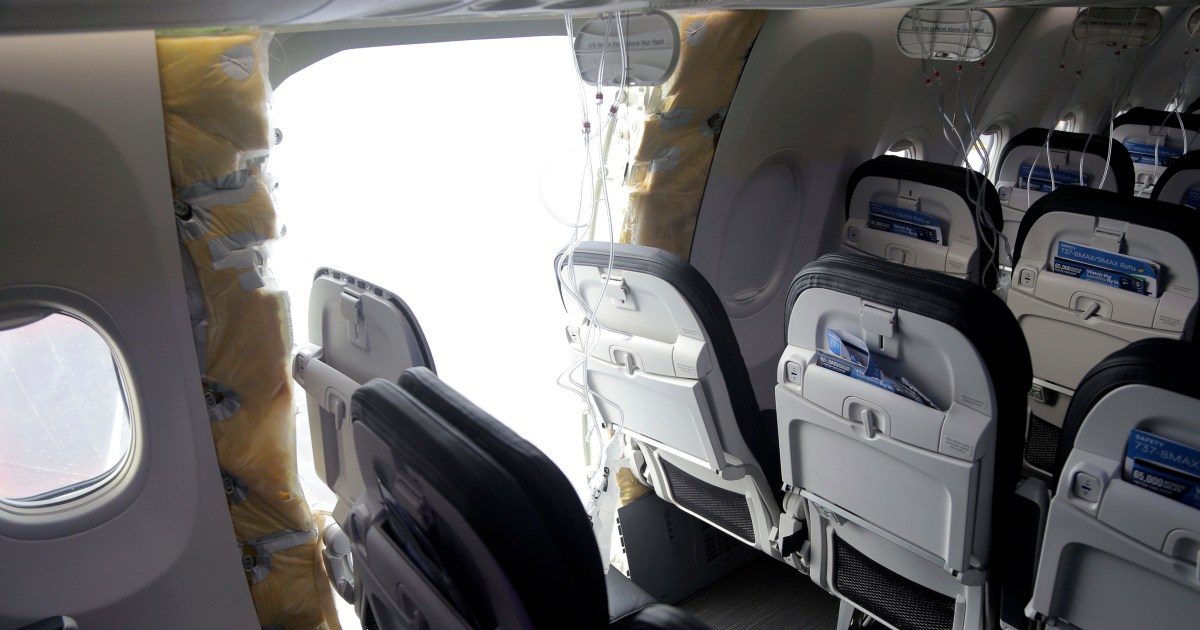Top aid officials call for greater solidarity and support for Haiti — Global Issues

Although the crisis has sparked immense needs, a nearly $680 million humanitarian plan launched in February is less than a quarter funded.
“It is very clear for many people of Haiti that they are paying the heavy price of the violence, again, that has ravaged the country,” said Edem Wosornu, Director of Operations and Advocacy at UN emergency relief agency OCHA, briefing journalists in New York.
Lives upended by violence
She was speaking from the Haitian capital alongside Lucia Elmi, Director of Emergency Programmes at the UN Children’s Fund (UNICEF) and Andrea Koulaimah of the European Commission’s Civil Protection and Humanitarian Aid Operations department, known as ECHO.
The top officials concluded a four-day visit to the Caribbean country, where 11 million people – the entire population – “have in one way or another had their lives shaken by the violence,” according to Ms. Elmi.
The situation has forced nearly 600,000 Haitians to flee their homes, and displacement has risen by 60 per cent since March. Roughly five million people are facing acute hunger, with almost 1.6 million at risk of starvation.
‘Window of opportunity’
Haiti’s health and education systems have also been heavily impacted. Only two out of five hospitals are functioning, and more than 900 schools have closed, depriving some 200,000 children of an education.
“We have only eight weeks before the start of the new school year, so there is a window of opportunity that we really need to seize to get those schools not only open again but functioning,” she said.
Sexual violence cases rising
Ms. Elmi noted that women and children have been disproportionately affected by the crisis and the level of brutality and violence they have suffered “has been really very, very painful”.
Sexual violence has increased 400 times with respect to last year, when some 100,000 cases were reported, she said.
She recalled a visit to a centre in Port-au-Prince that supports survivors, including a 14-year-old girl whose family had been kidnapped, and some members killed. Even though the teenager was raped and beaten for days, she remains determined to finish her studies and become a social worker.
Government commitment assured
The humanitarians travelled to other parts of Haiti, including Gonaïves in the north and Les Cayes, located in the south, and spoke to a wide cross section of people, including farmers, children out of school, mothers and “fierce” women entrepreneurs.
They also held talks with the authorities, notably new Prime Minister Garry Connille.
Ms. Koulaimah said that although the crisis requires a stronger and better-funded response, it will not be solved by humanitarian aid alone.
“It has to be solved by the Haitians themselves, and the Government has assured us of the commitment to do everything in their hands in order to transition out of the current crisis, and they need our support,” she said.
Stressing the need for more funding, she insisted that humanitarian aid is being delivered and “reaching its objective”, despite access difficulties.
Stand with Haiti
Ms. Wosornu added that “Haiti needs real lasting solutions to enhance development”, which includes restoring schools, health centres and other basic services.
Throughout the visit, Haitians repeatedly called for three simple things: peace, an end to the violence, and to reclaim their lives, she said.
“We wrap up our visit by reiterating our call to the international community to stand with the people of Haiti,” she said.
“We owe it to the women, we owe it to the children, and we owe it to the old men and women and all the people of Haiti that we’ve met across the country.”
UN mission extended
Earlier on Friday, the UN Security Council in New York unanimously adopted a resolution to extend the mandate of the UN political mission in Haiti, BINUH, until 15 July 2025.
The 15 ambassadors condemned in the strongest terms the increasing violence, criminal activities, mass displacement, and human rights abuses and violations which undermine the peace, stability and security of the country and the region.
Council members welcomed the establishment of the transitional governance arrangement as well as the subsequent creation of the Presidential Transitional Council and the inauguration of the interim Prime Minister and his Cabinet.
They reaffirmed the need for all Haitian stakeholders “to continue to advance a Haitian-led, Haitian-owned political process towards the holding of free and fair legislative and presidential elections”.
In this regard, they highlighted the need for the full, equal, meaningful, and safe participation of women and the engagement of youth, civil society, and other relevant stakeholders.
They also called on all Haitian stakeholders “to urgently establish a Provisional Electoral Council, and reach an agreement on a sustainable, time-bound and commonly accepted roadmap for elections”.
BINUH is the French acronym for the UN Integrated Office in Haiti, which was established by the Security Council in June 2019.
The mission has a presence in Port-au-Prince only, and works primarily with State institutions to strengthen political stability and good governance, advance a peaceful and stable environment, and to protect and promote human rights.
Source link




